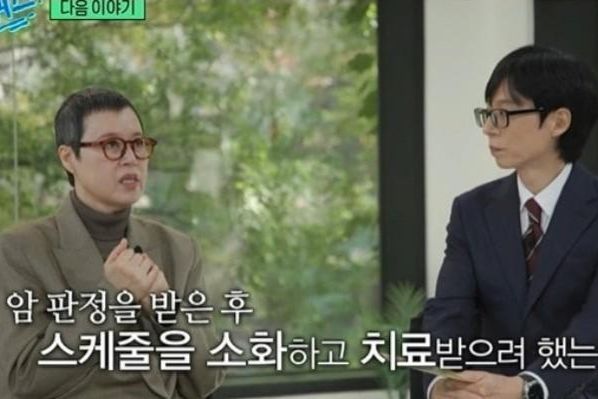Comedian Park Mi-sun made a brief appearance in a teaser on tvN’s “You Quiz on the Block” on Wednesday, marking her first television appearance since being diagnosed with breast cancer.
At the end of Wednesday’s episode, the teaser for next week’s show featured Park with a closely cropped hairstyle, as host Yoo Jae-suk introduced her as “our dear friend returning in good health.”
“I came to make my survival report,” Park said with a smile, explaining her reason for going on the show. She also addressed the false rumors that had circulated during her hiatus, adding, “There were so many fake stories.”
She also opened up about her breast cancer diagnosis and treatment, recalling, “I had an outdoor shoot scheduled and planned to start radiation therapy afterward. But when I opened the report … this is the first time I’m talking about it,” she said, pausing for a moment.
She lightened the mood with her trademark humor, joking about her short hair: “Don’t I look like Furiosa?” referring to the Mad Max heroine, and told the hosts, “It’s okay to laugh.”
At the end of the teaser, Park was shown receiving a surprise video message from someone, which moved her to tears and left viewers curious about the full story behind it.

Park Mi-sun appears in a teaser for tvN’s “You Quiz on the Block,” Wednesday. Courtesy of tvN
Park took a break from activities in January for health reasons. Her agency Cube Entertainment said at the time that she was taking a break to focus on her recovery, following reports that she had been diagnosed with early-stage breast cancer.
This article is translated by generative AI and edited by The Korea Times.
















